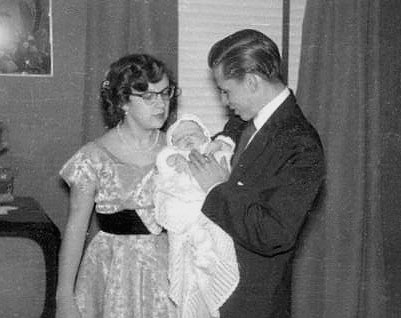We just watched the last episode of John Adams. I got the DVD from the library and we went through it in one week, all seven installments. I have to admit, the last episode brought tears. The partnership between John and Abigail was well-portrayed and deeply moving. The older I get, the more I find the strongest story resonance with depictions of deep, deep friendships, especially those that exist between lovers, spouses, life partners. I cannot imagine losing Donna, who has become exactly that for me, in spite of the fact that I have friends of longer acquaintance, good friends, too.
The casting was incredible, the make-up superb, the writing first class.
What struck me most about this as well was the marvelously-nuanced dramatization of the fundamental differences in political philosophy between Adams and Jefferson. I can’t help but think that when Adams declared that “the true history of our revolution is lost” he must have been thinking of the initial partnership and later dissolution of like-mindedness between himself and Thomas Jefferson, whom Joseph Ellis depicts an an American Sphinx.
Adams is here portrayed as an idealist who cannot separate his philosophy from his pragmatism. In the first dozen years of the new republic, there was enormous public sentiment for France and when that country descended into the frenzy of its own revolution gone mad, that sentiment demanded that we support the revolutionaries. The irony that France supported us when it was still a monarchy and now those very people that had backed us (granted, as a move in their own war with England) were the victims of the mob ascendant was lost on most people, and apparently even Jefferson, who wanted us to embroil ourselves immediately and deeply in support of the revolutionaries. Washington—how lucky they were to have him—refused. He was a militaryman by training and he understood how to assess the chances of success and how to go about surviving a conflict in which you are outmatched. He had seen more than his share of defeat in a long career and knew well that ideology needed a strong hand to keep it in check, lest it carry you over the precipice. He refused to side with France, believing that neutrality was the only way for the United States to survive. Adams shared that belief.
Jefferson, and those like him believed that the rightness of the cause would win out.
Neither Jefferson or Adams had served in the military, but it appears that Adams at least had seen a bit of bloodshed. He grasped an essential reality—that ideals do not win battles. And yet, politically, he clung to his ideals in the face of an enemy who seemed capable of indulging any tactic in the cause of winning, namely Jefferson. Almost a complete reversal of roles, at least in appearances.
Or was it?
Adams seems to have had a grasp of the long-term in a way that Jefferson, with his mercurial fixation on posterity, did not. Adams grasped that the fields in which ideals must be left unsullied by pragmatism are different than those in which an immediate fight for survival is waged. He would not interject himself where his loyalty to the Constitution said he ought not, even when it might win him another term as president. Jefferson seemed willing to do work-arounds whenever his vision demanded.
I’m simplifying, of course. Adams blundered in terms of ideals badly with the Alien and Sedition Act. He knew he would be remembered more for that—and not well—than for having steered the country through the shoals of potential disaster by refusing to take sides in the squabble between England and France. And the Alien and Sedition Act is a nasty, unAmerican piece of political offal. Patently unConstitutional.
And yet Jefferson’s purchase of the Louisiana Territory was also patently unConstitutional, a violation of due process, and in many ways unleashed nastiness and ugliness by opening up all that land to American incursion, wiping out more Native American nations and people, bringing us into direct conflict with Spain and then Mexico, lent opportunity for future presidents to exercise the worst aspects of imperial ambition all in the name of the United States and in contradiction to the Founding Intent of the republic….and for that he is praised.
The essential element of the American Revolution, as it was happening at the time, is simply a group of talented men scrambling around trying desperately to make something workable out of a deadly situation. They didn’t want a king anymore, they wanted to run their own affairs, but they were also terrified of their neighbors, so some legal wall had to be built to keep New York or Pennsylvania or Virginia from dictating to the smaller states. The southern colonies operated as agrarian economies based on slave labor, and they wanted to maintain that, so something had to be done to make sure the abolitionists in the north couldn’t strip them of millions of dollars worth of property and labor. In the tumult of ongoing war, they were working at a fever pitch to make sure they came out the other side with what they wanted, even at the expense of the unity that was to guarantee a victory, and they had no idea how it was all going to look. It was bedlam. It was panic-stricken intellectual jerrymandering.
And somehow out of this a framework evolved that, not then and not for a long time to come, but eventually emerged as a marvelous machine.
But there was little solidarity of invention, little conformity of vision. They all knew that they had to fight to be severed from Great Britain. That afterward they needed to erect a coherent government that wouldn’t take from them what they saw Britain trying to take from them. How they were going to do all this, on that there was little agreement.
It was a mess.
The myth prevails.
But not so much that sound research and a little patient thought can’t recover what might actually have been going on, and sometimes the results are something wonderfully poignant, insightful, and honest as this miniseries. It ought to be shown in grade school. It ought to be part of any American history course.
At a book festival a few years ago, I attended a discussion by a historian who had just published a biography of Aaron Burr. She’d taken the trouble to go back to primary sources and look at the man through the lens of his times rather than our modern, prejudiced view of a murderer and traitor. She talked about the humanness of these people, who were an amalgam—hero and villain, coward and genius, self-serving and patriotic, publicly strong and privately weak—when someone stood up to condemn her for her scholarship. His argument was that it wasn’t right to denigrate these people who had given us so much.
“I’m not denigrating anyone, sir,” the historian said. “I’m simply showing them as they actually were.”
“What good does that do? I don’t want to know that they were assholes. I don’t agree with what you’re doing.”
I don’t want to know that they were assholes.
Understandable sentiment, perhaps, but without realizing how utterly human they were we risk deifying them. And we’ve seen that process at work through most of our history, to greater or lesser degrees. The temptation to cast the revolutionary era in bronze and hold it up as some ideal age is great because it seems so simple and honest and straight-forward compared to our present age of almost fractal complexity. We can see the desire for that kind of simplicity and, we believe, dependability in the constant purges against politicians who prove themselves frail or hypocritical or simply too human. We want paragons, walking talking ideals who never stray from the Philosopher’s Gold of which we think the Founding Fathers were composed. We sacrifice a lot of talent this way. Brilliant economists, diplomats, orators, legislators get harried out of office because they slept with someone out of wedlock or smoked pot in college or eschew a religious point-of-view. The examination of private lives in search of the unstained, pure of heart, consistently noble character drives the best and brightest away from even putting themselves forward to serve. As if any of these factors relate to competence or civic virtue or ability to lead.
Any examination of the Founding Fathers shows such a catalogue of human frailty that likely none of them today could get elected as small-town councilman much less to the highest offices of the land. Among them were speculators, slave owners, philanderers, alcoholics, bigots, gamblers, and all manner of personal hypocrisy.
But look at what they managed to build.
I think more such dramatizations ought to be made. We should know very well how human these people were. We should know that, really, they weren’t so very different than we were, beyond those differences that time and circumstance inevitably produce. It would do us good to get the idea that if these—uncertain, petty, churlish, hypocritical, frightened men—could do what they did when the opportunity presented itself, what can we not aspire to accomplish with all the benefits of their histories and our present abilities? Knowing that we are more like them than not would be a good thing, I think.


